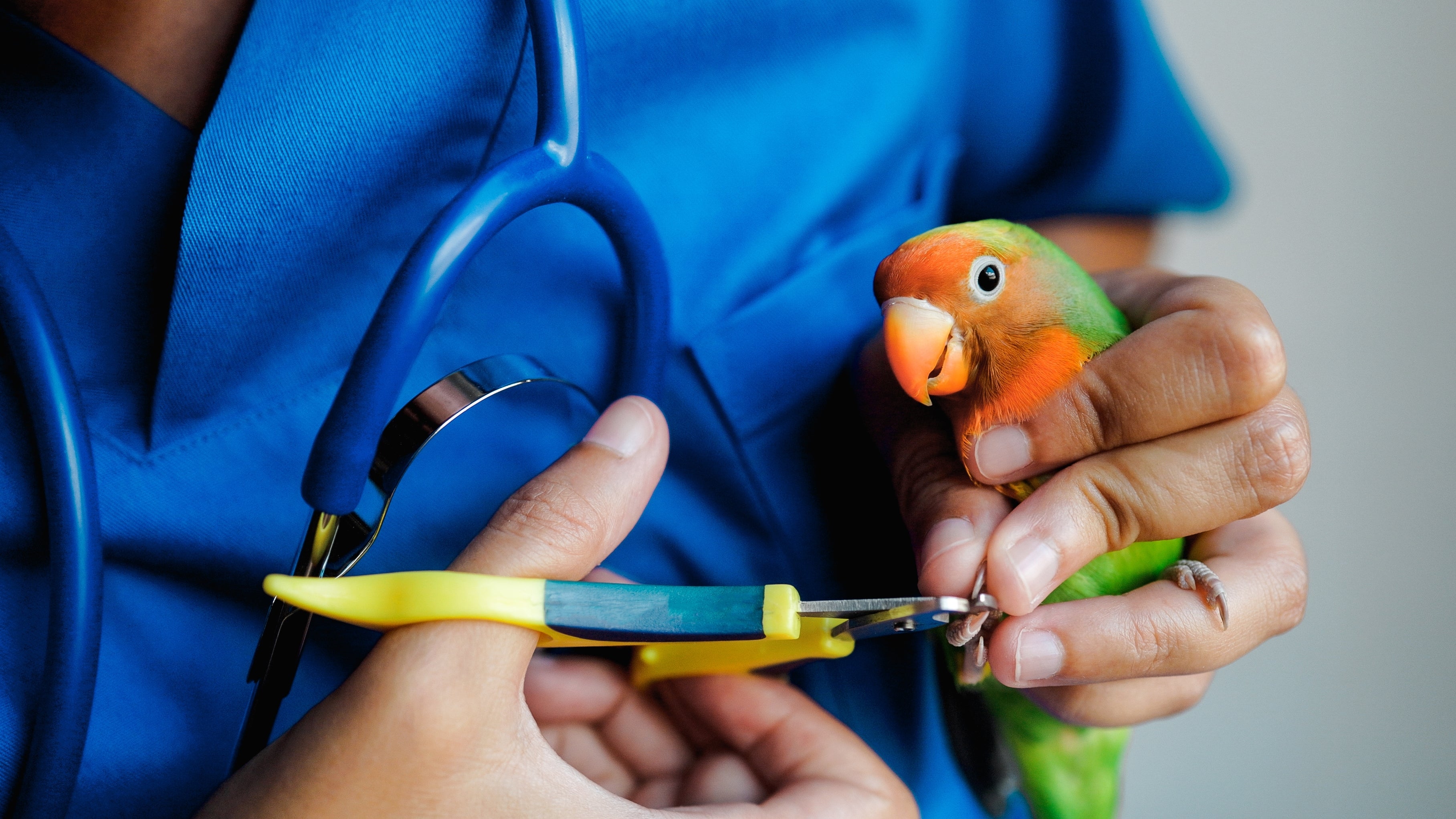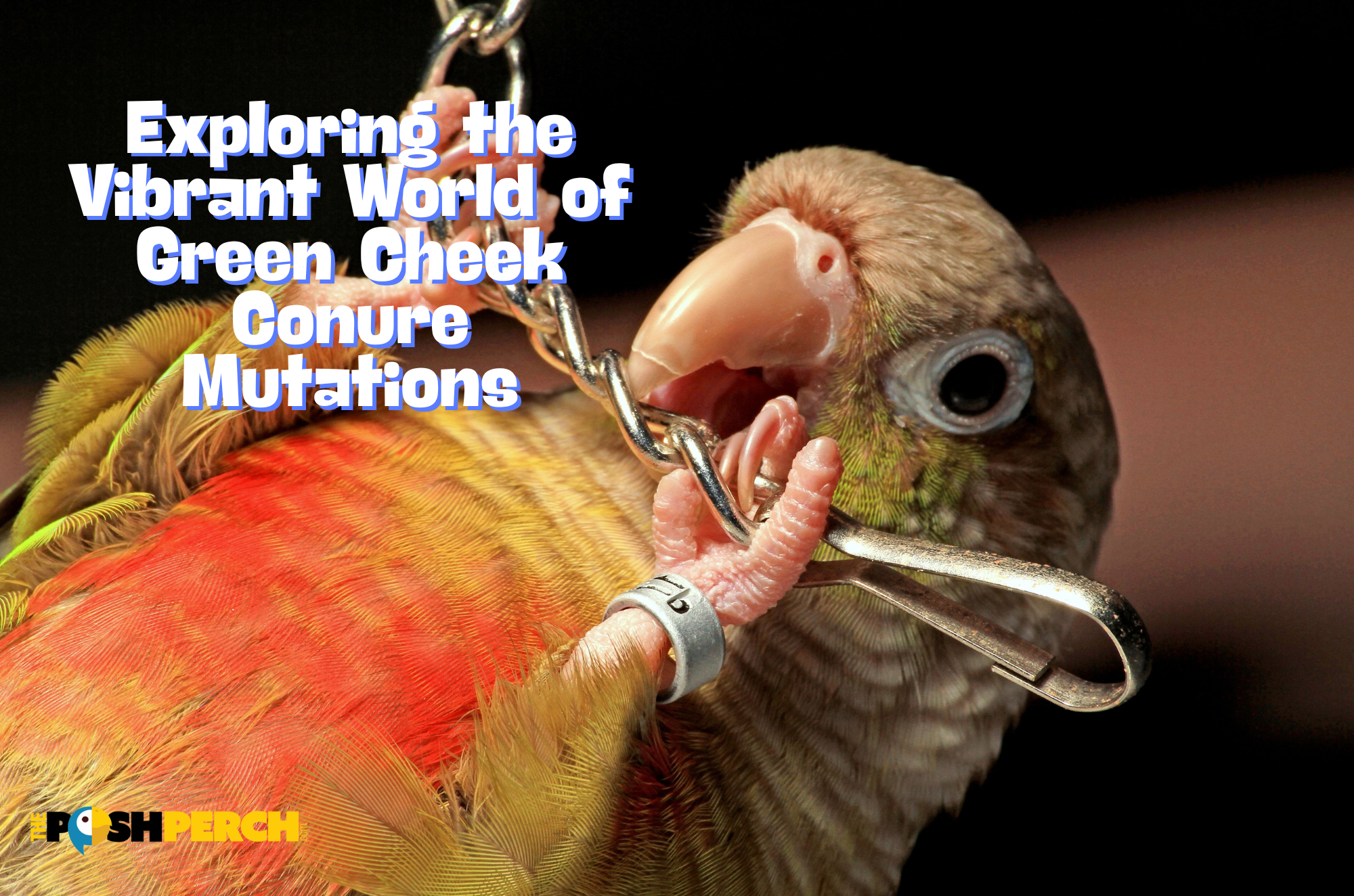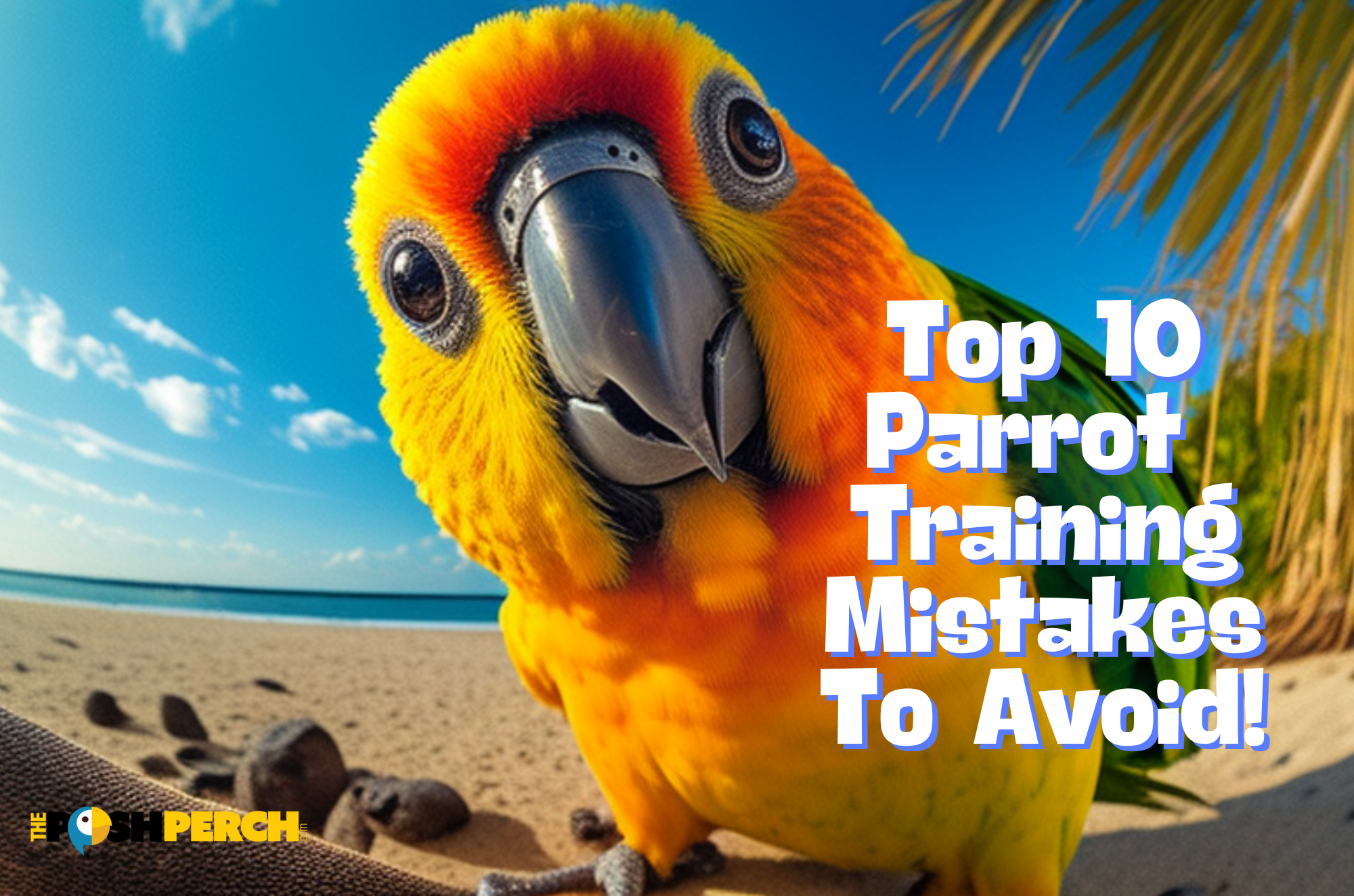
The Art and Science of Parrot Training: Your Comprehensive Guide to a Happy, Intelligent Pet
6 min reading time

6 min reading time
Parrot training, huh? You might be wondering, "Can parrots really be trained?" Well, you're in for a treat. Not only can parrots be trained, but with the right techniques, they can perform a variety of tricks, mimic human speech, and even solve complex puzzles! Parrot training isn't just about teaching tricks though - it's about establishing a deep, understanding bond with your feathery friend.
If you're ready to roll up your sleeves and delve into the world of parrot training, it's vital to first understand what makes these colorful creatures tick. Parrots, like us humans, are highly intelligent and social animals. They thrive in environments that stimulate their intellect and satisfy their innate curiosity. Can you imagine the possibilities if you could tap into their intelligence and curiosity?
Parrots are flock animals in the wild. This translates to a strong need for social interaction in captivity. Parrots left alone for extended periods can become bored, depressed, or even aggressive. So, part of parrot training involves keeping your parrot entertained and engaged with you, their flock substitute.
Parrots respond best to positive reinforcement. What does this mean? It means rewarding your parrot for good behavior and ignoring bad behavior. Positive reinforcement encourages your parrot to repeat the behavior that earns them rewards, making it a powerful tool in your parrot training arsenal.
Step-up training is a basic yet essential component of parrot training. It involves teaching your parrot to step onto your hand or a perch on command. This might seem like a simple trick, but it establishes a foundation of trust and obedience between you and your parrot.
Parrots are famous for their ability to mimic human speech. But how do they do it, and how can you encourage them to speak? Parrots have a unique vocal apparatus that allows them to produce a wide range of sounds. By providing positive reinforcement (like treats or verbal praise), you can encourage your parrot to repeat certain words or phrases.
Just as dogs can learn to fetch, parrots can learn to perform tricks. The secret to trick training is consistency and repetition, coupled with plenty of positive reinforcement. Always remember to keep training sessions short and fun to avoid stressing your parrot.
Biting can be a significant obstacle in parrot training. It's crucial to understand that parrots usually bite out of fear or aggression. Training your parrot to trust you can help reduce biting incidents.
Parrots are naturally loud, but excessive screaming can indicate a problem. It may be a sign of boredom, fear, or illness. Dealing with screaming involves understanding the cause and addressing it appropriately.
Fear is a common issue in parrot training. Remember, patience is key. Work on building trust with your parrot, and never force them to do something they're uncomfortable with.
Advanced Parrot Training Techniques
Have you ever heard of clicker training? It's a popular training technique used in a variety of animals, including dogs, cats, horses, and yes, even parrots! A clicker is a small device that makes a distinct "click" sound. This sound becomes a signal to the parrot that they've done something right and a reward is coming. It's a nifty little tool to have in your parrot training toolkit.
Parrots are incredibly intelligent creatures that enjoy a good mental challenge. Providing your parrot with puzzles can stimulate their intellect, keep them entertained, and even reduce behavioral issues. From simple treat-dispensing toys to complex puzzle boxes, the sky's the limit!
Free flight training can be an exciting and rewarding experience for both you and your parrot. However, it's also a significant commitment and requires a deep understanding of your parrot's behavior and trust.
A balanced diet is crucial for your parrot's overall health and can influence their behavior and willingness to train. After all, a healthy parrot is a happy parrot, and a happy parrot is more likely to engage in training.
Regular vet checkups are essential to catch any potential health issues before they become serious. Remember, a sick parrot won't be interested in training, so maintaining their health is a crucial aspect of successful parrot training.
Just like us humans, parrots need regular exercise to stay fit and healthy. Exercise also helps to keep them mentally stimulated and can be incorporated into your training routine.
Parrot training is a gradual process and the duration varies depending on the parrot's personality, the complexity of the task, and your consistency. Patience and persistence are key.
Most parrot species can be trained to some degree. However, their learning ability and the range of tasks they can learn will vary between species.
Yes, older parrots can still be trained. Remember the old saying, "You can't teach an old dog new tricks"? Well, it doesn't apply to parrots. However, training an older parrot may require extra patience.
It's possible to train more than one parrot at a time, but it may be more challenging. Parrots can distract each other during training sessions, making it harder for them to focus.
Yes, but remember that some level of noise is natural for parrots. If your parrot's screaming is excessive, it might be a sign of boredom, stress, or even illness.
Parrots are very expressive. If your parrot is enjoying the training, they may show signs of excitement, such as flapping their wings, bobbing their head, or making happy sounds.
There you have it – your comprehensive guide to parrot training. Remember, every parrot is unique. What works for one might not work for another. Be patient, persistent, and always keep a positive attitude. And most importantly, enjoy the journey. Parrot training is more than just a means to an end. It's a way to build a deep, lasting bond with your feathered friend.


